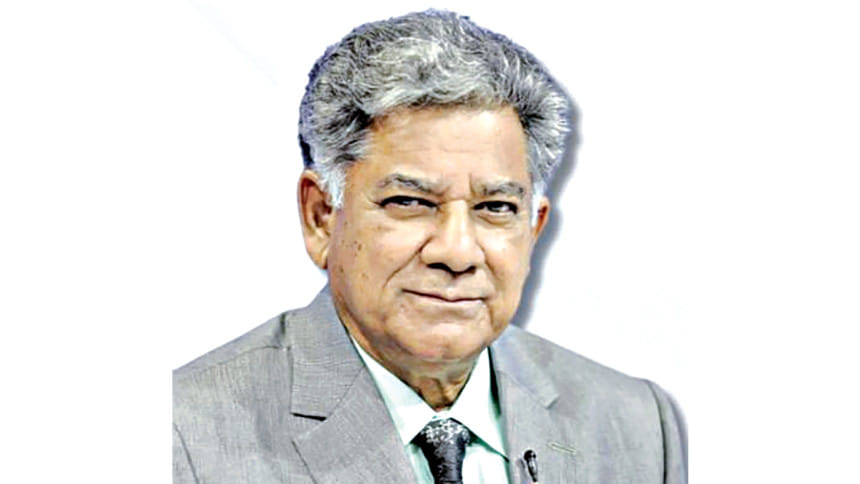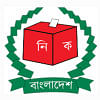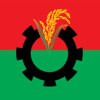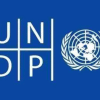Election schedule likely by Oct

With the interim government having completed its first six months in office, all eyes are now on the series of dialogues with political parties to reach a consensus on reforms to be carried out. At this crucial juncture, The Daily Star's Wasim Bin Habib and Baharam Khan sat down with Brig Gen (retd)M Sakhawat Hussain, adviser to the ministries of shipping and labour and employment, to discuss various issues. Below is the full interview.
Star: When will the election take place?
MSH: If I am not mistaken, the election schedule will be announced around October, and the election may be held in December. We might have a new government formed by January. Chief Adviser Muhammad Yunus has already said if we want to go to polls after urgent reforms, it will be held at the end of this year, and if we wish to do extensive reforms, the election may be held in the first half of next year. Reports from the reform commissions have started coming in, and there will be discussions with political parties soon regarding the reform proposals. We believe that political parties' opinions on reforms are the most important as no reform will last without their participation.
Star: Based on your experience as Election Commissioner, who actually conducts elections in Bangladesh: the Election Commission or the government?
MSH: Nowhere in the world can an Election Commission conduct an election alone -- it requires the involvement of six to seven lakh people. The EC has to work on most matters with the cooperation of the police, presiding officers and others from the government -- there is nothing wrong with it. The question is, what is the government's perspective on the election?
For instance, the previous government was determined to win the last three parliamentary polls at any cost. The first election (held in 2014) took place without the opposition parties, which was followed by an election that became widely known as "the midnight election" (due to ballot papers being stamped the night before the polls). The most recent election featured dummy candidates. Such election models are unheard of anywhere in the world. Such polls were not held even during Ershad's regime. The Deputy Commissioners appointed individuals from the Awami League and the Chhatra League as presiding officers.
Star: Has public trust been restored in the EC now?
MSH: People's trust has not yet been restored, and it cannot be regained overnight, especially considering the irregularities that occurred in the elections over the past decade. Therefore, I believe a lack of trust still persists, and restoring it remains the biggest challenge.
I would like to request the EC not to view their responsibilities as merely bureaucratic -- they are extremely difficult tasks. When we were in the EC, regardless of our performance, people at least had some trust in us.
Star: How can the EC regain public trust?
MSH: There is no specific formula for this. Those in charge must understand who they need to communicate with and whom to invite for discussions. They must act independently.
Star: The Electoral Reform Commission has recommended that the delimitation process be carried out by a separate authority. The current EC reacted to it by saying that the move would curb its authority. What is your opinion?
MSH: Delimitation is a highly complex issue. In many countries, it is typically carried out by a separate commission. If the EC were to handle it, political parties might accuse them of bias. However, even if a separate commission handles this issue, it must adhere to the guidelines set by the EC. If implemented properly, I believe it will be a positive initiative.
Star: Now, let's turn to labour issues. What is happening with Beximco's factories?
MSH: The Beximco issue reflects the real situation in Bangladesh. The government has not shut down any factories. These factories are closing because many of these companies operate on bank loans and subcontracts. Now that the banks are no longer providing loans to them, the factories cannot sustain themselves. Where will the banks get the money to lend when the companies have taken loans and not repaid them? From what we have gathered, around 27,000 workers were employed at Beximco. However, among the Beximco companies that took loans, 16 are untraceable. In other words, loans were taken under these companies' names and worker numbers were reported but these companies do not actually exist. Just from the state-owned Janata Bank, various entities of Beximco have taken loans amounting to Tk 23,000 crore. Can you imagine? If we include loans from other banks, Beximco has borrowed a total of Tk 40,000 crore. The question is, what happened to all that money? There is no clear record.
Star: You previously announced that Beximco's workers would receive their salaries by February.
MSH: According to our calculations, more than Tk 500 crore will be needed to pay their salaries. We have informed the finance division that this money must be provided on humanitarian grounds. At the same time, we are finding ways to create employment opportunities for these workers. The government is not in favour of shutting down any industry and will not take any action that harms workers. The government has so far disbursed Tk 55 crore and Tk 58 crore in two phases to support the workers.
Star: What will happen to the unemployed workers?
MSH: An American company has expressed interest in Beximco's entities and is currently evaluating the possibility of taking over the factories. If they move forward, decisions will be made regarding the bank loans. Besides, a Japanese business group has also shown interest in Beximco and plans to conduct a three-month pilot programme to assess whether the factories can be brought back into operation. If things move in a positive direction, the government will take the necessary steps to keep these industries running. I hope this will prevent the workers from remaining unemployed for long.
Star: If another company takes over, won't there be legal complications?
MSH: The Bangladesh Investment Development Authority is working on these issues.
Star: Companies under the Gazi Group have also suffered losses. What will happen to them?
MSH: No one has come forward regarding Gazi Group. I am not aware of any developments in this regard.
Star: Is the government still providing funds to any factories?
MSH: We had to provide funds to some factories on humanitarian grounds. However, this will not continue indefinitely.
Star: How would you evaluate the first six months of the interim government?
MSH: The greatest achievement of this government is that the state has not failed -- it continues to function. For this, the main credit goes to the people of Bangladesh. However, I would have been happier if the situation had improved further. We have seen examples in Iraq and Libya of what happens after a leaderless movement. In Bangladesh, a government collapsed and left the country in the face of a sudden uprising. At that time, there was no opposition party in the parliament to take charge. It was at this critical moment that our government took over. Many even wanted the country to plunge into chaos and some still do. But the people have put their trust in our government.
Star: But people's expectations from this government were very high.
MSH: It took three months just to fully understand the real condition of the state. Banks were looted, reserves were in dire condition and the government faced enormous economic challenges. The law-and-order situation was practically non-existent. Yet, there has been remarkable progress in a short period. The credit for this primarily goes to the people. I am not claiming that the law-and-order situation has reached the desired level. If it had, the army would not have to be deployed outside the cantonments for such a long time. When the government of a country that relies heavily on imports collapses suddenly, there is a real risk of a famine-like situation. But we have started to recover from that. However, elements of the deposed government are still trying to destabilise the country in various ways.
Star: Regardless of the challenges, people still have high expectations from this government.
MSH: There is nothing wrong with that. But our biggest problem is a lack of patience. How can we achieve in six months what was not done in 16 years? We need to understand that.
Star: But people are questioning whether the government is on the right track.
MSH: According to people's expectations, the government's pace would ideally be 80 kilometres per hour. We might be moving at 40-50 kilometres per hour. To reach 80 kilometres per hour, we need to be given time.
Star: What is the progress on the amendment of the labour laws?
MSH: As a signatory to the International Labour Organisation conventions, we are committed to certain reforms. One of the discussions is whether a factory's workers can form a trade union if 15 of them agree. Tripartite discussions are going on among the government, employers and workers on this issue.
Star: Do you think the recent labour unrest in the garment sector will worsen in the future?
MSH: The government is not at all negligent in taking the necessary steps to address workers' problems. However, a vested group is instigating a section of workers to create trouble, which is a major concern.
Star: What is the current situation at the ports?
MSH: There were some initial issues after the uprising, but the situation is stable now. I have visited the ports three times and plan to visit more to ensure that port services improve rapidly. Some containers that have been at the ports for 20 years are still there. I have given instructions to address these issues.
Star: Is there any update on the deep-sea port? Do we need it? Will we be able to operate it? Sri Lanka built two deep-sea ports and then had to lease them to China.
MSH: We absolutely need a deep-sea port. The progress was stalled due to the strategic rivalry between China and India. But now Japan will carry out the project, so that issue has been resolved. We can operate it. Our existing ports are already performing well. Investors from Denmark, Singapore, Saudi Arabia and Dubai are eager to invest in our ports. Saudi Arabia has shown interest in taking full responsibility for Matarbari Port while China is set to build two container terminals in Mongla Port.
Star: Bangladesh's relationship with India appears stable on the surface, but is that truly the case beneath the surface?
MSH: Have we engaged in any conflict with India? Please show me one example. We have consistently spoken about maintaining relations based on equality. Is that a bad thing? The former prime minister herself admitted that Bangladesh has given so much to India that the country will never be able to forget it. Despite that, India did not allow Nepal and Bhutan to use our ports. It is because India values its relationship with the government, not the people of Bangladesh. We all saw how that relationship unfolded over the last 16 years.
Star: The issue of barbed wire fences along the border did not arise in the past. Why is it an issue now?
MSH: The previous government did not raise the issue, so no problem arose. Even when Bangladeshi people were being shot at the border, the Bangladesh government remained silent. Instead, they instructed the BGB to hold flag meetings to recover the bodies. But now, we are speaking up and expressing our concerns. If someone slaps me, I may not punch them, but I will at least slap you back. From our side, I do not see any hostility toward India. They are a big country -- why should we seek conflict with them?


 For all latest news, follow The Daily Star's Google News channel.
For all latest news, follow The Daily Star's Google News channel. 








Comments